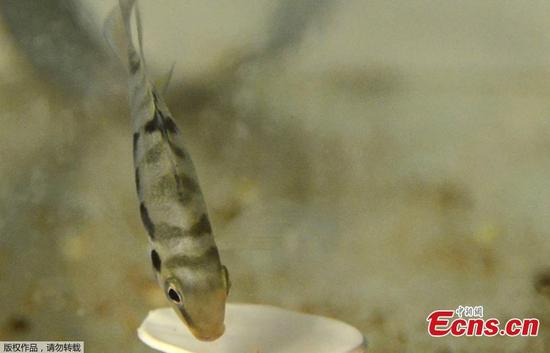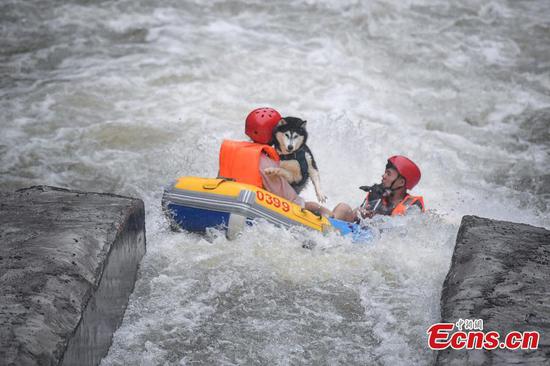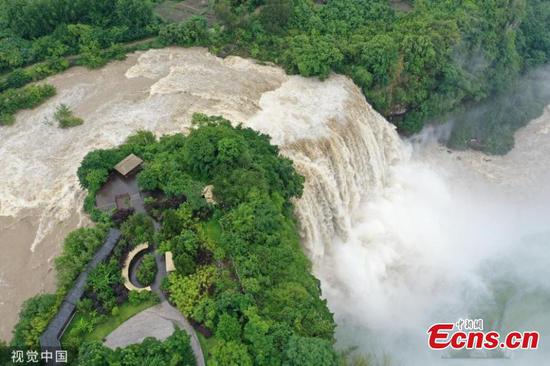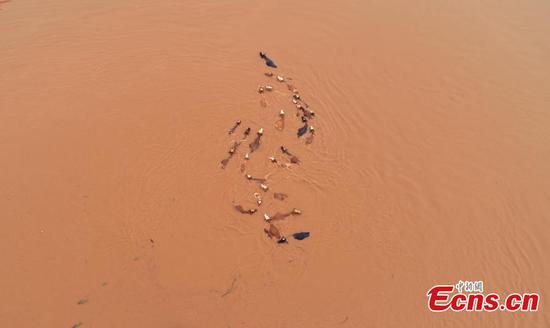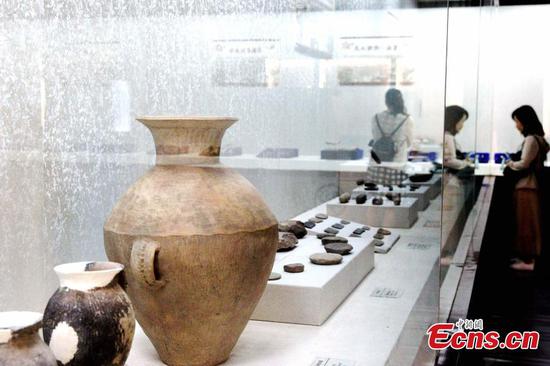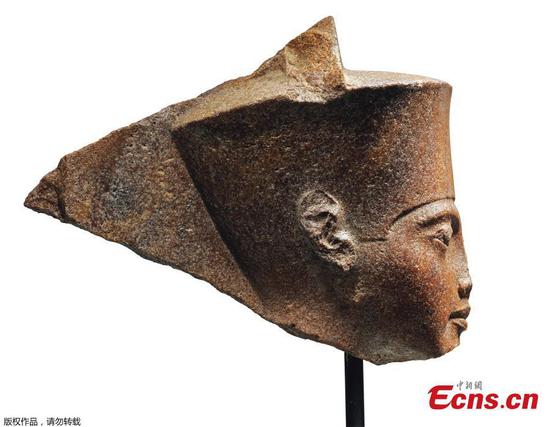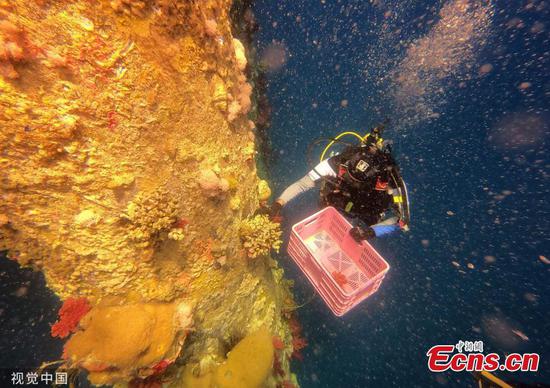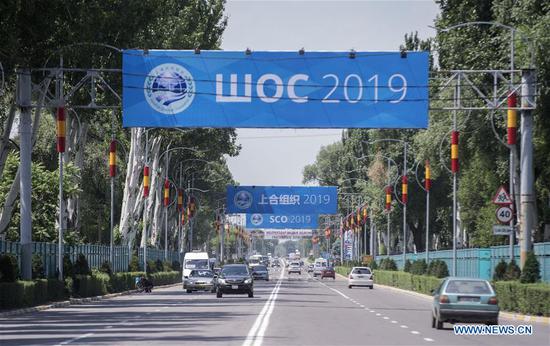When Zhang Xin arrived in Shanghai from the inland province of Sichuan in 2017, he went to look at the ocean.
However, when he got to the city's southeastern shore, he was disappointed by the amount of litter on the breakwaters.
That memory prompted him to participate in a shoreline garbage monitoring and cleanup campaign on June 1 that was organized by Shanghai Rendu Ocean, an NGO that focuses on marine trash.
Along with 30 other volunteers, the 25-year-old set off to the Nanhuizui Seaside Park, where they were divided into five groups to cover the 100-meter shoreline.
They collected trash into a designated area and sorted it into 60 categories, before weighing the waste - including plastic bottles, foam boxes and plastic bags - and recording various data.
"The majority of what we got was plastic," Zhang said. "Before I collected it with my own hands, I didn't realize how much plastic people use in daily life, or all the different types."
On the same day, three other Rendu Ocean groups were doing the same thing on seafronts around Shanghai.
From May 25 to June 7, the NGO conducted 55 shoreline trash-monitoring programs with partners in 35 coastal cities.
The organization started the project in 2015 with the aim of providing the public with firsthand data about China's ocean trash. In the past four years, the number of monitoring points it operates has grown from 12 to 55, and more than 7,000 volunteers have been recruited to help collect and record waste.
Rendu Ocean conducts monitoring operations at each point every two months to maintain consistency and identify the trends and features of the trash along China's coastline.
Zhang Weicai, a researcher with the NGO, said there has been a clear rise in the density of trash on beaches in recent years, and various types of plastic account for about 72 percent of it.
"Some papers by foreign scholars claim that China is the largest ocean trash polluter, but their claims were based on estimates of population and economic growth," he said.
"They may not represent the true picture, which is why we have been monitoring the trash," he added, noting that the scientific method the NGO uses is a localized version of one used by the International Coastal Cleanup Campaign, a long-established global environmental group.
Rendu Ocean was founded by Liu Yonglong. The 44-year-old, who worked for a State-owned enterprise after graduating from Fudan University in Shanghai, has always enjoyed taking part in public service activities.
Like Zhang, Liu hails from China's interior - in his case, the Ningxia Hui autonomous region - and in his mind, the ocean should be blue, pure, transparent and beautiful.
However, when he arrived in Shanghai and stood on a beach, he saw trash brought by the tide lying on the sand.
The experience prompted him to found Rendu Ocean in 2007, and since then the organization has organized more than 120 cleanup events.
"Most marine debris comes from human activities on land. There are two ways to reduce it: cut back on the amount of waste entering the sea; and clean up the waste in the sea. Rendu Ocean is currently doing the latter, and we hope to get more people to join our coastal cleaning activities," Liu said in a recent interview with the World Bank.
When Rendu Ocean was founded, few Chinese knew about ocean trash, but in recent years, they have become increasingly aware of the issue.
In addition to beach cleanups and monitoring operations, Rendu Ocean organizes environmental education programs to raise awareness of ocean trash among children.
"We hope we can change people's attitudes and behavior to reduce the amount of waste entering the sea at source," Liu said.










